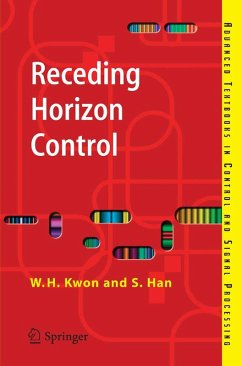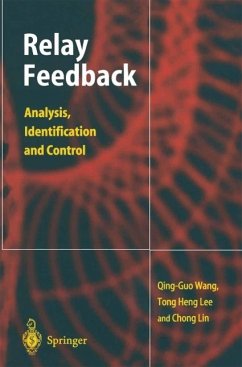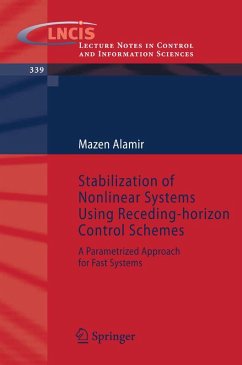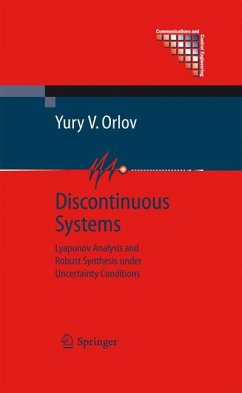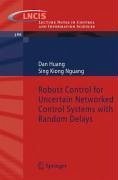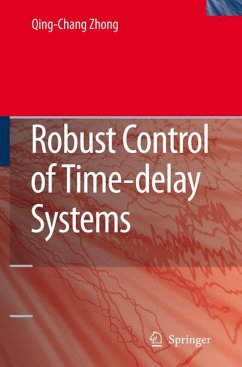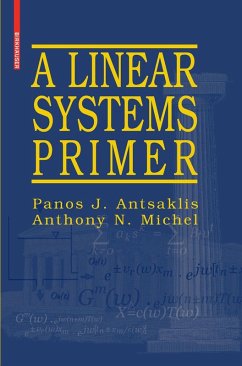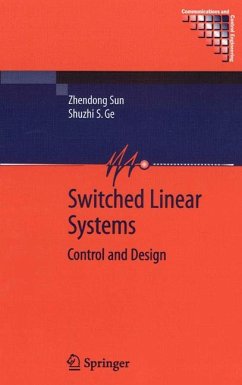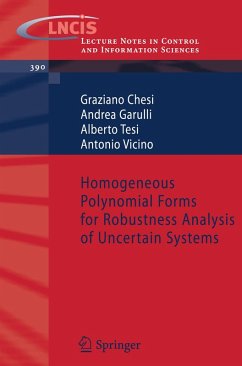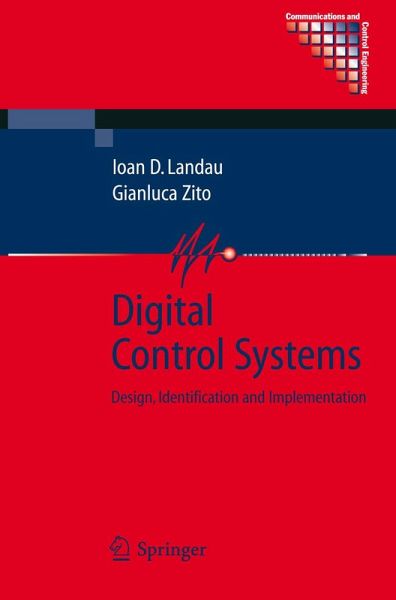
Digital Control Systems (eBook, PDF)
Design, Identification and Implementation

PAYBACK Punkte
36 °P sammeln!
The extraordinary development of digital computers (microprocessors, microcontrollers) and their extensive use in control systems in all fields of applications has brought about important changes in the design of control systems. Their performance and their low cost make them suitable for use in control systems of various kinds which demand far better capabilities and performances than those provided by analog controllers. However, in order really to take advantage of the capabilities of microprocessors, it is not enough to reproduce the behavior of analog (PID) controllers. One needs to imple...
The extraordinary development of digital computers (microprocessors, microcontrollers) and their extensive use in control systems in all fields of applications has brought about important changes in the design of control systems. Their performance and their low cost make them suitable for use in control systems of various kinds which demand far better capabilities and performances than those provided by analog controllers. However, in order really to take advantage of the capabilities of microprocessors, it is not enough to reproduce the behavior of analog (PID) controllers. One needs to implement specific and high-performance model based control techniques developed for computer-controlled systems (techniques that have been extensively tested in practice). In this context identification of a plant dynamic model from data is a fundamental step in the design of the control system. The book takes into account the fact that the association of books with software and on-line material is radically changing the teaching methods of the control discipline. Despite its interactive character, computer-aided control design software requires the understanding of a number of concepts in order to be used efficiently. The use of software for illustrating the various concepts and algorithms helps understanding and rapidly gives a feeling of the various phenomena.
Dieser Download kann aus rechtlichen Gründen nur mit Rechnungsadresse in A, B, BG, CY, CZ, D, DK, EW, E, FIN, F, GR, HR, H, IRL, I, LT, L, LR, M, NL, PL, P, R, S, SLO, SK ausgeliefert werden.



